Beth Tabler's Blog, page 160
September 29, 2022
Review – A Cup of Tea at the Mouth of Hell (Or, an Account of Catastrophe by Stoudemire McCloud, Demon) by Luke Tarzian
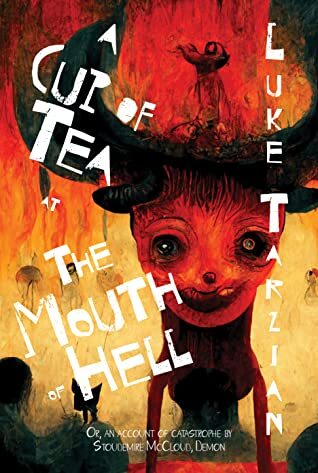 Luke Tarzian has made a name for himself with psychological fantasy through both Vultures and his Adjacent Monsters duology (The World Breaker Parable and The World Breaker Requiem). His new book, A Cup of Tea at the Mouth of Hell, is a quick novelette that at first glance, seems more absurdist and comical but quickly becomes both more sincere and metafictional.
Luke Tarzian has made a name for himself with psychological fantasy through both Vultures and his Adjacent Monsters duology (The World Breaker Parable and The World Breaker Requiem). His new book, A Cup of Tea at the Mouth of Hell, is a quick novelette that at first glance, seems more absurdist and comical but quickly becomes both more sincere and metafictional.
The first few chapters feel kin to what the book originally promises, a lure until the trap snaps shut.
The plot, as it begins, is that the tea kettle they use to introduce newly damned souls to Hell with has disappeared. Hell is also not the place of fire and brimstone (which is deemed Heavenly propaganda by the narration). While it’s never made explicit, it seems that Hell is the absence of God, and Hell has been made worse because Heaven has absconded with their kettle.
Stoudemire McCloud, a demon and secretary to Lucifer Morningstar, starts the story off as a sort of put-upon assistant who nonetheless narrates the tale with a very aristocratic, Victorian pomp. As the story proceeds, that affect fades and the story is narrated in a much more casual manner. The story at this point could have went for a tricky bartering session between Heaven and Hell, or a heist in Heaven to retrieve it, both of which could have maintained the story’s previous tone. But instead at this point the story changes from whimsy to despair.
The in-text explanation for the change in narration is that Stoudemire is stressed but it’s at this same point that the whimsy takes a definitive back seat in the story and is replaced by something achingly sincere. Lucifer’s mind seems consumed with thoughts of The Fall, and his thoughts drift back to Stoudemire’s advice: trauma isn’t just a bad memory but the reaction to that memory.
The tea kettle is not a tea kettle. It is clearly a representation of the things we wanted that we can never have again. Life before the Fall. To barter with heaven or to steal from them could make a fun story, but it would be a lie. Tarzian instead faces that head on, detailing grief and loss in a vivid way. It’s not the story expected. It’s better.
Buy from Amazon
a cup of tea•a cup of tea•a cup of tea•a cup of tea•a cup of tea•a cup of tea•a cup of tea•a cup of tea•
The post Review – A Cup of Tea at the Mouth of Hell (Or, an Account of Catastrophe by Stoudemire McCloud, Demon) by Luke Tarzian appeared first on BEFOREWEGOBLOG.
Books that Made Me – The Name of the Rose by Umberto Eco
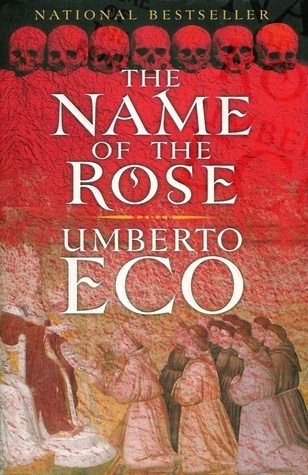 The Name of the Rose is Umberto Eco’s bestselling 1980 debut novel set in a 14th century Italian monastery. At its surface, the story is a Sir Arthur Conan Doyle-style murder mystery in which the English Franciscan friar, William of Baskerville (an obvious nod to Sherlock Holmes), and the novice Adso (in the Dr. Watson role as narrator/sidekick) investigate the suspicious death of a Benedictine monk. But there are many layers to Eco’s masterpiece, including in-depth discussions of theology, semiotics, and the conflicting philosophies of rationalism versus dogmatism. Umberto Eco’s prose is elegant, erudite, and remarkably accessible given its high information density.
The Name of the Rose is Umberto Eco’s bestselling 1980 debut novel set in a 14th century Italian monastery. At its surface, the story is a Sir Arthur Conan Doyle-style murder mystery in which the English Franciscan friar, William of Baskerville (an obvious nod to Sherlock Holmes), and the novice Adso (in the Dr. Watson role as narrator/sidekick) investigate the suspicious death of a Benedictine monk. But there are many layers to Eco’s masterpiece, including in-depth discussions of theology, semiotics, and the conflicting philosophies of rationalism versus dogmatism. Umberto Eco’s prose is elegant, erudite, and remarkably accessible given its high information density.
For me personally, reading The Name of the Rose was a transformational experience, reigniting my love of reading and opening new doors of literary discovery. As part of “The Books That Made Me” series, this post is not meant to be a review of The Name of the Rose, but rather my own personal journey that led me to this book as an undergraduate student, and the profound impact it has had on me since.
My love of reading began at a young age, encouraged by my parents, and especially by my mother, who worked as a kindergarten teacher for over 30 years and always knew the best children’s books. I have such fond memories of reading as a young child, especially Eric Carle’s The Very Hungry Caterpillar and P.D. Eastman’s Go Dog Go. As I grew older, I graduated to the Old Mother West Wind tales by Thornton W. Burgess, checking out well-worn copies from my local public library.
My first exposure to fantasy came with The Hobbit by J.R.R. Tolkien during my sixth grade English class taught by my mother’s cousin-in-law, who was also an outstanding teacher. I immediately fell in love with Middle-earth and subsequently devoured The Lord of the Rings multiple times. Although I also enjoyed C.S. Lewis and Lloyd Alexander, nothing could compare to The Lord of the Rings.
Unfortunately, as is the case for many teenagers, my love of reading gradually faded away during a series of uninspired high school English classes, which focused on the usual set of tired American classics, ignoring world literature and anything related to fantasy or science fiction. One can only take so much Nathaniel Hawthorne and Herman Melville before reading itself becomes a chore.
Salvation came during my undergraduate studies at Alfred University in upstate New York, where I experienced the joy of taking two classes from Dr. Fiona Tolhurst, a young assistant professor of English. Fiona was a passionate medievalist whose research focused on feminist interpretations of Arthurian literature. She single-handedly restored my love of reading in classes where we covered both medieval literature such as The Mabinogion and medieval-inspired fantasy including T.H. White’s The Once and Future King.
But the most impactful book for me was The Name of the Rose by Umberto Eco. I fell in love with Eco’s beautiful prose, thematic depth, and engaging plot that kept me glued to the pages. I loved it, and I wanted more.
The Name of the Rose led me to discover other authors who would rank among my favorites. Umberto Eco naturally led to fellow Italian author Italo Calvino and his heartfelt, magic-tinged stories of love and loss. From Calvino, I discovered the world of magical realism, first with Latin American authors and then within Japanese literature, leading to one of my favorite authors in Haruki Murakami. Over the following years, my literary world expanded exponentially, ultimately bringing me back to my love of fantasy and to another favorite author, Mark Lawrence, noted for his ingenious infusion of dark fantasy with sci-fi elements, all told in a subtly interconnected universe. But The Name of the Rose was the initial catalyst that triggered all these subsequent discoveries.
Of course, I owe all of this to my favorite English professor from Alfred University, Dr. Fiona Tolhurst. After I graduated from Alfred, Fiona’s academic career brought her to Switzerland for several years and then back to the United States, where she became department chair at Florida Gulf Coast University. We stayed in touch over the years, and I always tried to express my gratitude for what she taught me.
Unfortunately, tragedy struck just before Christmas in 2021, when Fiona unexpectedly passed away at the age of 53. It’s still beyond my comprehension how someone so full of life could be taken from this world so suddenly. In the weeks following her tragic death, I felt that the best way to honor her legacy would be to take it as my personal mission to share my love of reading with the world, just as Fiona shared hers with me. Every time I write a review or recommend a book, I am doing this in memory of Fiona, hoping that her impact can live on and amplify even after her untimely death. This brought me, ultimately, to join the staff at Grimdark Magazine, where I’ve met so many friends who share that same passion.
To me, The Name of the Rose is more than just a book, as it became my gateway to a lifelong love of literature. It is also my constant reminder of the indelible impact one teacher can have on a student’s life.
Buy from Amazon
the name of the rose•the name of the rose•the name of the rose•the name of the rose•the name of the rose•the name of the rose•the name of the rose•the name of the rose•
The post appeared first on BEFOREWEGOBLOG.
September 28, 2022
Bjørn Again – Author London Price
 In 1969, Carol Hanisch published an essay titled “The Personal is Political.” It’s never been more true than in 2022. The left engages in internal microbattles about microaggressions. The right simply responds with aggression. The left fights about who is allowed to write what. The right indiscriminately removes books from libraries. The left tells people to “educate themselves.” The right can’t wait to teach them. (Conspiracy theorists are people who went and educated themselves.) The left has Twitter. The right has the Supreme Court. Their motto is “hate everyone who doesn’t hate everyone.” Ours is… what?
In 1969, Carol Hanisch published an essay titled “The Personal is Political.” It’s never been more true than in 2022. The left engages in internal microbattles about microaggressions. The right simply responds with aggression. The left fights about who is allowed to write what. The right indiscriminately removes books from libraries. The left tells people to “educate themselves.” The right can’t wait to teach them. (Conspiracy theorists are people who went and educated themselves.) The left has Twitter. The right has the Supreme Court. Their motto is “hate everyone who doesn’t hate everyone.” Ours is… what?
I wish some people would educate themselves – on topics I consider important. I also know I’m completely ignorant about many other topics, because I can afford to be. The easy way out is to pretend they don’t exist. I want to learn, though, and not from Professor YouTube. Which is why I asked London Price to explain certain things to me – using words no longer than four syllables.
Some of what I ask below is purposefully stupid or rude on purpose. Some isn’t. Probably. Do I even know what I don’t know?
London: the teacher
Good morning. What are your pronouns?
Good afternoon! My pronouns are she/her.
Is this how I should approach a stranger?
I think that depends entirely on the stranger… I know some cisgender heterosexual people who would (wrongly) be offended by that question, perhaps reading into it that their gender presentation is somehow not standardized. I can see it being threatening. But I see it as a lovely way to just check in and get on the same page before a conversation starts. It takes a little humility to ask that, really.
Can you explain “gender presentation being somehow not standardised”?
I think there’s a lot of religious or cisgender people who still see gender as only “male” and “female,” despite plenty of others telling them that’s not their experience. Maybe they’re truly not interacting with genderqueer people or maybe their own bias or religious edicts are overriding those thoughts. But they see binary gender as the standard, and anything outside of that applied to themselves might feel like a threat to that delicate worldview. They’re forced to reconcile with an experience they really don’t understand. In some ways, can’t understand.
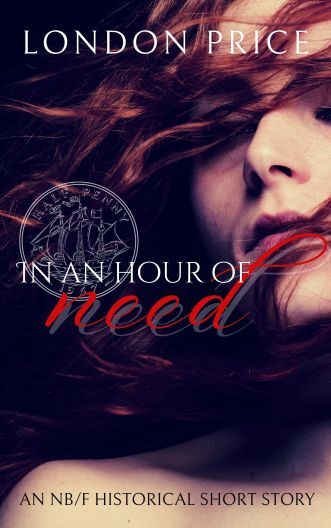 I’ve seen people using “he/they” – what’s that about? They’re not sure?
I’ve seen people using “he/they” – what’s that about? They’re not sure?
Without being able to dialogue about it, I would guess that it means that the person wants both used. Just one doesn’t quite encapsulate who they are, and he wants to share both of his identities. (See how easy that is?)
Is it really so awful to be “misgendered” when someone fails to use “ze/hir” when the Supreme Court takes everyone’s right to abortion away? Aren’t we fighting a wrong battle?
Battles can have a lot of fronts, I think. It’s all part of the same war. It’s a simple but profound truth that “we’re not free until we are all free” (Martin Luther King Jr.). It’s all body autonomy, right? It’s all about respect for persons and their right to lead their one precious life as they see fit, such that it’s not hurting anyone. And what does it hurt to use a different word? My wife likes to quote the scene from Star Trek Deep Space Nine where a Klingon (warlike, angry species for those who don’t know) meets a Trill who’s had a symbiont put into a different body. “Kurzon, my old friend!” the Klingon booms, and she smiles and hugs him. “It’s Jadzia now.” And with just as much enthusiasm, he booms out, “Jadzia, my old friend!”
I loved this scene so much.
Me too! We can all get battle fatigue, and I think that’s something to guard against–I know my counselor has cautioned me to pick my battles when it comes to changing people’s minds, because arguing with the delivery guy over pronouns doesn’t matter much. I try to save my energy for people and relationships that matter to me. But yes, I think inclusive language does matter. Sometimes, I think it matters more than anything–words have the power of life and death.
Sadly, a large percentage of trans people are suicidal before they transition–that’s how deeply this matters to them. And the rates of depression, anxiety and suicide among kids who are in unaffirming situations regarding their sexuality or gender are staggering. So I think it’s a good battle to fight.
London: the person
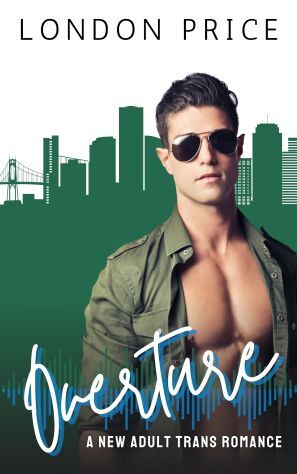 Your wife is a trans woman. How did she realise that – and how did you feel when she told you?
Your wife is a trans woman. How did she realise that – and how did you feel when she told you?
She came out to me about three years ago, long before any public coming out. She demonstrated so much fucking courage and trust in me. I really wasn’t ready to hear it; I had a few trans writer friends on Twitter, which is the only reason I had any sympathy or compassion. But it freaked me out at first. I wasn’t sure if she’d still be attracted to me (not yet knowing gender and sexuality aren’t the same). I wasn’t sure if I could handle being married to someone who looked like a woman. That time was a true gift; I was able to really share in her evolution and watch her blossom into the awesome, still-nerdy lady she is now.
She originally started thinking about it based on a podcast, actually. There were several trans people on, and they were talking about how to name yourself (which is *much harder* than you might think!). And some of the body dysphoria comments that were made sort of made a lightbulb go on in her head, like “there’s a name for the way I feel?” But she tried to shove it down, because we worked for a religious organization, and there was specific language in their handbook about how no employee would be allowed to transition at work…
Wait, what?! How is that legal?!
Our state is largely Republican, and the laws are very open about what employers can require, and given that it’s a religious organization, I think that gives them extra latitude about what they can do.
So – rather than lose her job to explore this, she just stuffed it down harder. We backburnered any future plans and decided to just let her be herself at home. And of course, gender euphoria is a lovely drug that once tasted, you just want more of. So here we are after a slow journey: picking a new name (two years ago), starting to wear different clothes (eighteen months ago), me telling her she can’t borrow my clothes because they look better on her (eighteen months ago minus one day), all that fun stuff.
Outside work, how did people react to Mrs. Price? Was there purposeful deadnaming, or something well-meant, yet offensive?
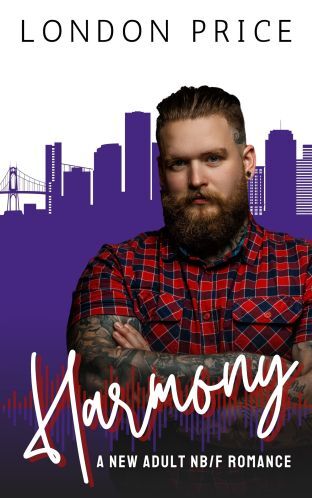 My wife is a fascinating person, so she actually prefers the term “birth name” to “deadname.” To her, it’s not so much a person who’s gone as a person who’s evolving away from some false impressions put upon her at birth. Since most of our friends are part of our religious community, I expected some nastygrams, some “you’re going to hell” type messages. Instead, what I got was almost more hurtful–silence. And I do wish people would say something. Tell me you don’t agree; I can handle it. But to share my heart and the deepest secret of my life with you and get no response at all communicates that you don’t want a relationship with me at all going forward. That’s the only way I know how to read that. A few people’s spouses said “they didn’t know what to say,” but you don’t really have to say anything profound. “Thanks for letting me know.” “Thanks for sharing your story.” It can be as simple as that.
My wife is a fascinating person, so she actually prefers the term “birth name” to “deadname.” To her, it’s not so much a person who’s gone as a person who’s evolving away from some false impressions put upon her at birth. Since most of our friends are part of our religious community, I expected some nastygrams, some “you’re going to hell” type messages. Instead, what I got was almost more hurtful–silence. And I do wish people would say something. Tell me you don’t agree; I can handle it. But to share my heart and the deepest secret of my life with you and get no response at all communicates that you don’t want a relationship with me at all going forward. That’s the only way I know how to read that. A few people’s spouses said “they didn’t know what to say,” but you don’t really have to say anything profound. “Thanks for letting me know.” “Thanks for sharing your story.” It can be as simple as that.
And actually, I didn’t really get any reactions that I’d “correct.” Her grandma who’s in her early eighties responded immediately with the new name and said, “I’ve loved you since the moment I laid eyes on you and only ever wanted you to be happy.” So obviously that made me cry. But it can be that simple. Love wants the best for the other.
A friend of mine, whose spouse reacted the same way you did, is a trans man. That journey took years of soul-searching, suffering, work. There was no backlash, though. Why is it so different for trans women? Who are TERFs – and why are TERFs?
Trans men sometimes don’t get as much hate, but they’re also…weirdly invisible, at least in literature? I do think it’s a byproduct of male privilege and also the apparently inherently threatening nature of penises, because that’s the whole thing about bathrooms, right? “They could rape someone!” Lady, trust me, my wife just wants to pee without a bunch of dudes around.
So TERF stands for Trans Exclusionary Radical Feminist, and the idea is that it somehow diminishes womanhood to include trans people in it. I can’t pretend I understand that idea at all, but there it is. All I can imagine is that it somehow threatens their “in group,” the idea that women have to stand up against patriarchy, and then there’s someone they still consider part of the patriarchy in their group? Which is…silly? Because I know cisgender men who are feminists, so even if you don’t consider being trans “a thing,” you should be able to include them.
It seems to me like trans people became more visible in the last few years. There’s more awareness.
I would agree that more trans people have been coming out publically, but interestingly, once you know what an “egg” looks like (the trans term for someone who hasn’t cracked “why they’re like this”), you start seeing them everywhere. Not that I’m judging or anything, but when I see someone who’s almost trying too hard to fit the binary presentation–i.e. full beard or a lot of makeup–I do sometimes wonder. But I think whether there’s more awareness largely depends on where you look. In my Book Twitter circles? Sure. But in other parts of the internet? Or (gasp) real life? I’m not sure. I’ve only met a few other trans people in person, but that may be a product of where we live.
I’ve got a full beard and wish it could be fuller! When I was eight, I didn’t know queer people existed – “queer” was an insult I didn’t even understand, I just knew it was wrong, and I was wrong too. So I put on my Mum’s dress and heels, and couldn’t take them off quickly enough. I had no idea what “gay” meant until I turned 13. How does a 13-year-old realise “maybe I’m not a gay man and I am not a woman” in the very much binary – outside social media – world?
I think community helps. It feels a bit strange to quote C.S. Lewis in this conversation, but it’s like he said, “Friendship is born at that moment when one person says to another: “What! You too? I thought I was the only one.” As with any kind of self-discovery, it helps to find that sense of resonance with other people’s experiences, to be able to talk and to try things. I would love to see a day when it can be explored more freely without judgment. There’s so many ready to be critical and jump down people’s throats for trying it out–I look forward to a day when there’s more understanding that surgery is not an imperative or inevitable, that there’s many ways to be comfortably trans. If people want surgery, great! But if they don’t, that can hold a stigma. Basically, less stigma would be nice. And again, I’m just a cis ally–trans people could answer this question better, I’m sure. I can’t speak for everyone, just my own observations.
 Did you have to learn how to be an ally?
Did you have to learn how to be an ally?
For me, it’s been helpful to read memoirs and other books by trans people to try to wrap my head around it. It is a very singular thing, I think, to feel uncomfortable in your own body in that way. The first book that broke me was Tomorrow Will be Different by Sarah McBride. She narrates not only meeting her spouse (who soon after died of cancer), but her fight for equal rights in her home state of Delaware. Up until then, I really didn’t understand how unequal rights were for trans people. And like many people, her relationship was with another trans person, so that was interesting to hear about. The next one I’d recommend was A Year Without a Name by Cyrus Grace Dunham. That one was sad, too, but a truly vulnerable deep dive into what it felt like to be feeling your way through the gender transition process on hands and knees in the dark. There’s no manual for this.
I thought the rainbow was there to unite us all, but at last count I could fly at least four flags at once. That’s a lot of pride for me to carry. Is there a word for spouse-of-a-trans-person? What’s your flag?
I don’t have a flag, and this is one of the tricky parts for a lot of trans partners who are cisgender, I think. I’ve thought of myself as heterosexual and cisgender my whole life, but now I’m in love with a lady. Definitely not a lesbian, but I’m sure it appears that way, and I don’t want to make it seem like I think sexuality is a choice. On the other hand, I think love is always a choice. I haven’t gotten through 21 years together with this person without choosing her a few times over and over, and I’m still choosing her now because she’s mine. Society’s boxes don’t fit me, though.
I’m using the word queer because I do identify with “identities that break the norm” (which feels to me like basically what LGBTQIA means) and because I love a lady and that appears different? But inside, I feel basically the same. I don’t know if that makes sense. My wife tells me I’m a good queer person (a bit feisty with not a lot of fucks to give).
Aha, so you tell people you’re bisexual?
Not to sound like I’m shitting on anyone, but…is it anyone’s business but mine? Yes, bi-erasure is a problem, and I know with Colby in Acoustics I was intentional about showing that he’s bi, but in my real life, it just doesn’t feel relevant to anyone I’m not pair-bonding with. I guess I’m a rather private queer person. Also, I’ve never been attracted to another woman but mine. I think that would be…misleading.
London Price: the authorYour pronouns are she/her. However, you have written a romance novel, where one of the characters is non-binary – I have never read anything like this before. What makes you qualified to write about that? Don’t you think someone non-binary should have written it instead of you?
Yes, I do think someone non-binary should’ve written it instead of me–I don’t have that identity. But what I do have is experience writing outside my lane. I’ve written Black characters, autistic characters, heck–even male characters. And when care is taken, in this case in the form of a LOT of research and multiple sensitivity readers, I felt good enough about it to put it out into the world.
I hope the intention was understood that I wanted to bring trans joy to the forefront of what can be such a difficult experience. I’m sure some will say I failed, and that’s fine–I hope someone takes it as a challenge and does it better. I would love to read that book. I was willing to publish it because my sensitivity readers did say that it was affirming and resonated in some positive ways, so that’s success for me. I’m always writing to affirm people.
Oh. The word “instead” was meant to be a provocation. In traditional (legacy) publishing there is, indeed, a limited number of “slots.” You self-publish, though. So why not “as well as”?
I see what you’re saying about the less finite possibilities for indie publishing, but I still want to hear from more queer creators, and I hate the idea that my work is supplanting anyone. I mean it more as inspiration than replacement, but I want to read trans people in their own voices. I think the world needs that more than it needs my approximation of it. Imagination is powerful, but it is limited by experience. I would love to see more literature reflect a trans imagination and experience, even if that meant pulling my own books.
Which the conservatives already do… You’ve mentioned writing Black characters. Shouldn’t someone Black write them instead? I write female characters, you know. How to reconcile “diversity” and “lived experience”?
That’s something I really wrestle with, all the way around. Yes, it would absolutely be better if Black creators wrote their own books. But we all know that indie publishing is not as accessible to everyone as we’d like it to be–so in some ways, I hope I’m using my own financial privilege to make the world a better place. Not that I intended to write diversely–it just came out that way. I wouldn’t erase characters, because I think there’s always something to be learned there. They pop in for a reason. But the line is muddy. We’re always writing outside our experience in some ways–and readers have shared with me how much it meant to them to see a Black prince with a big, loving family or an autistic doctor who’s everyone’s heartthrob.
A few people have told me that I didn’t do it well enough. And since I have ADHD, there’s a segment of me that responds to rejection absolutely illogically and takes that criticism to heart when I shouldn’t. Does it matter that more people have told me how much they loved it? No. Because art is about putting your heart on the page, it’s necessarily vulnerable, and I’ve been jabbed a few times. Another part of art, I think, is always wanting it to be better. We hit this chasm as creators where we analyze someone else’s work and just think, “I’ll never be that good.” When in reality, when I go back and read my earlier work, I *can* see how far I’ve come. So I guess I’d rather always want it to be better than be complacent.
When you were writing a non-binary character, Glenn, in Harmony – how did you decide what their wardrobe, voice, behaviour… well, everything… should be? What was the most difficult part?
I wanted to show the margins of trans society; there’s a strong bias against trans people who don’t physically transition, so I wanted to show a genderqueer person who was content with their body (little to no dysphoria), but not with their gender presentation and perhaps the way their body was treated/handled by others. Pronouns were indeed difficult–I know I’m personally coded toward identifying a bearded person as male, so even though I was only imagining them in my head, I misgendered them sometimes. But they were based on friends and acquaintances on Twitter and sort of showed up fully formed when I considered who’d be a good match for Hillary. So I was happy they did.
Is there a “male/female ratio” on the non-binary spectrum? Does Glenn have a preference for dresses or trousers? What about shaving?
I guess I thought about it more like categories than percentages–I asked Glenn how they felt about clothes, about grooming, about names. They kept their birth name. And knowing they were artistic, their clothing was an important expression of who they are. They wear skirts, but also jeans, but see no reason to conform to female grooming norms like shaving, since they’re not female. I don’t think I really assigned those things as much as observed them about nonbinary people I know.
In Harmony, there’s a scene I love where Glenn shares with Hillary about seeing a sculpture of Moses in Italy.
“Michelangelo sculpted Moses, too? All we ever hear about is David.”
“If that’s true, it’s a tragedy. I don’t know how to describe it, Hil. But it was one of the seeds that led me toward authenticity in my life. Moses is sitting there, and you know it’s a statue, but he just looks so pissed, like he’s holding back. And he’s tucked these tablets under his arm, but he’s also got his fingers tangled in his beard like a security blanket, like he doesn’t know what to do. And I’d been thinking a lot about gender while I was there, and seeing those strong fingers in that stone beard that looked so real…I realized I wanted to keep my beard. Some of the stuff I’d been doing like the tattoos and the piercings, they were meant to mask my softer side. But I loved my beard.”
Have you had someone wrongly accuse you of being ignorant?
Yeah, just a few times. There was one early reviewer of Acoustics who was upset by the way Chase refers to his genitals and felt it was very unrealistic. My research said that many trans people rename their parts to fit more into their gender identity, which I think is brilliant. In fact, I pulled the exact word from someone’s personal essay, so I know it’s reasonable. But it obviously didn’t fit with his experience.
Some people want to be known as queer and some people don’t. Some people enmesh it into their identity and some would never hang a pride flag or a trans flag on their wall or windows. It didn’t resonate for him, and that’s fine.
 I loved how you presented an autistic doctor in one of your books… only they’re not written by “London Price.” You write sweet small-town romance – and books with very explicit sex scenes featuring a non-binary person. How do your “old” readers react to the “new” books?
I loved how you presented an autistic doctor in one of your books… only they’re not written by “London Price.” You write sweet small-town romance – and books with very explicit sex scenes featuring a non-binary person. How do your “old” readers react to the “new” books?
Very few readers know about both my pen names, and that’s intentional. When I started my career, I had a strong sense of guilt about writing sex scenes, because like many people, I have a lot of religious baggage about sex and marriage. I also had a strong sense that I wanted to show healthy sexual relationships, though – it isn’t something that religious people are often exposed to, in my opinion. So my original goal was to write books that talked about/modeled healthy communication around sex without showing it.
But that went out the window when I wrote my first honeymoon bonus scene. Being able to show my autistic doctor and his wife parsing sex for the first time–which can be understandably overwhelming for someone who’s sensory sensitive–was really important to me, and I ended up really enjoying the scene. About half my fans downloaded it, and that’s been consistent across all the steamy bonus scenes.
But I never intended to start a steamy pen name. One of the hard things about us being closeted for so long is that I had no outlet for wanting to be part of the queer “community,” so I started writing about it. And particularly focused on queer joy, because I feel there’s a lack of that in novels. I guess I could have written it sweet, but I think it would be ill-received, and frankly, I didn’t feel the burden of other people’s expectations anymore.
Bio
London Price is a queer, cisgender author who writes light trans romance. She and her wife live in the Pacific Northwest.
Links
Twitter: https://twitter.com/lpriceauthor
Instagram: https://instagram.com/authorlondonprice/
Website: https://londonpricebooks.wordpress.com
Amazon: https://amazon.com/London-Price/e/B09C8YWLHN
Goodreads: https://www.goodreads.com/author/show/21870238.London_Price
National Centre for Transgender Equality
https://twitter.com/HEAforTransKids
Buy Acoustics: A Forbidden M/M Romance from AmazonBuy Harmony (Portland Symphony Book 2) from AmazonBuy Overture from Amazon
LONDON PRICE•LONDON PRICE•LONDON PRICE•LONDON PRICE•LONDON PRICE•LONDON PRICE•LONDON PRICE•LONDON PRICE•
The post Bjørn Again – Author London Price appeared first on BEFOREWEGOBLOG.
September 27, 2022
The Books That Made Me – Moby Dick by Herman Melville
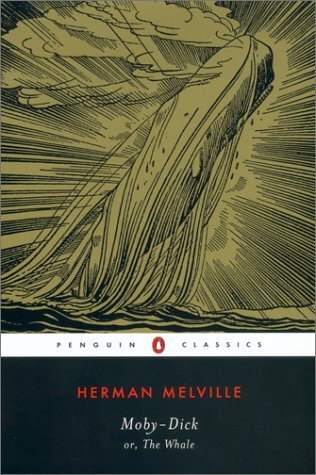 If there’s any kind of character in literature I come increasingly to identify with, it’s people too old and grizzled to give a shit. If there’s another, it’s characters who are unmercifully forced to shoulder the bone-snapping weight of obsession. Both of these are central to a book that’s been a perennial favorite of mine since I was a kid.
If there’s any kind of character in literature I come increasingly to identify with, it’s people too old and grizzled to give a shit. If there’s another, it’s characters who are unmercifully forced to shoulder the bone-snapping weight of obsession. Both of these are central to a book that’s been a perennial favorite of mine since I was a kid.
Half-drowning in the seas and sands of my own tribulations, innumerable novels have acted as flotation devices, and while they’ve no doubt affected me in countless ways, keeping me from sinking below the lightless horizons of my many traumas has often been chief among them. Yet it’s Herman Melville’s magnum opus that grabbed hold of me as a child and refused to let go even into adulthood. Interestingly enough, it’s also the book that launched me into my trajectory of literary horror. If you’ll indulge me in a little gross, substantively dubious hyperbole, you might even call it one of the first modern horror novels.
Moby-Dick; or, The Whale (the rather unwieldy original name for what we now usually just call Moby-Dick) came after the seminal works by Mary Wollstonecraft Shelley and John William Polidori in the early 1800s, and prior to Robert Louis Stevenson’s The Strange Case of Dr Jekyll and Mr Hyde close to the turn of the century. Published in 1851, Moby-Dick was a notorious critical and commercial failure before finally getting its due recognition as an American classic some 30 years after Melville’s death (and nearly 70 years after its initial publication).
In this light, it really is a sort of undead lich king of a book, rising from an early grave to post-life power and glory, but that’s not what makes it one of the great horror novels of its century. No; that’s the stark, pungent religious imagery slathered over the pages like pitch, from Father Mapple’s fiery sermon on Jonah that helps presage the coming brutality to the prophetic fate of the Jeroboam and her crew that uses biblical reference to foreshadow the grim fate of a possessed Captain Ahab. It’s the whale’s grand majesty contrasted with the literal horror splattered all over detailed descriptions of its dissection. And yes, it is of course Ahab’s monomaniacal drive that propels so much of the book in all its demonic fervor; but it’s also when Stubb orders Fleece, the cook, to deliver a sermon to the sharks swarming the corpse of a recently murdered sperm whale, a sermon which ends in the timeless exhortation to “Kick up de damndest row as ever you can; fill your dam bellies ‘till dey bust- and den die.”
(There’s a reason I call this the most quotable book written in the English language. It’s poetry. You can’t go more than a handful of pages without a line worthy of opening a novel.)
 If you’ve never read it, the whole book is exactly that metal. In a chapter detailing the “funeral” of a dead whale as the natural world comes to feast upon its remains, the “peeled white body” of the beheaded creature is described as “a marble sepulchre”. A sickly Queequeg lies himself down next to his harpoon inside a custom-made coffin, later used as a sea chest upon regaining his health, and which will eventually save Ishmael’s life as a makeshift buoy. Ahab, bullying the ship’s blacksmith to craft a weapon to slay his White Whale, all but opens negotiations with motioning to his head and saying, “can ye smoothe out a seam like this … if thou could’st, blacksmith, glad enough would I lay my head upon thy anvil, and feel thy heaviest hammer between my eyes.” Right before the harpoon is forged in the offered blood of three crew members while Ahab invokes the name of the devil.
If you’ve never read it, the whole book is exactly that metal. In a chapter detailing the “funeral” of a dead whale as the natural world comes to feast upon its remains, the “peeled white body” of the beheaded creature is described as “a marble sepulchre”. A sickly Queequeg lies himself down next to his harpoon inside a custom-made coffin, later used as a sea chest upon regaining his health, and which will eventually save Ishmael’s life as a makeshift buoy. Ahab, bullying the ship’s blacksmith to craft a weapon to slay his White Whale, all but opens negotiations with motioning to his head and saying, “can ye smoothe out a seam like this … if thou could’st, blacksmith, glad enough would I lay my head upon thy anvil, and feel thy heaviest hammer between my eyes.” Right before the harpoon is forged in the offered blood of three crew members while Ahab invokes the name of the devil.
None of this would sound out of place on Mastodon’s second studio album, Leviathan, which is based on Moby-Dick for the obvious reason that it’s pretty hard to get any more metal than Melville did in the mid-1800s. Despite occasional outings as a bank clerk and schoolteacher, he was a badass in his own right, grappling with the concept of God upon the high seas in the navy and aboard the whaling vessels from which the Pequodwould eventually sprout. In many ways, he was a man after my own heart, using the page to explore his own experiences and work them out. The downward spiral of Pierre; or, The Ambiguities* that begins in its latter passages has all the cheerful narrative softness of a rock hammer, and this mix of literary foundations layered with the subtly horrific has been a huge influence in how I work out my own nonsense on the page.
Moby-Dick also has plenty of the real-life horrors common to its era, which must be acknowledged. The crushing realities of slavery and racism sit restlessly aside the outrageously dangerous working conditions common to the working class—as if the outright murder of some of nature’s most wondrous creatures to turn them into a host of darkest commodities wasn’t dark enough already. Sometimes it includes all these things deliberately, to purposeful effect; other times such depictions are unfortunate casualties of the time and place in which it was written, which makes them a decidedly different kind of uncomfortable.
Yet no matter how you shake it, Moby-Dick is a triumph of dark, psychological storytelling, and it was in the mad eyes of Ahab that I first glimpsed the horror stories I wanted to tell as an author. I owe a sincere debt to Herman Melville, and I hope my own contributions to literature, however small, might be worthy enough to pay fitting tribute to his memory—even if that’s one hell of a tall order.
Buy from Amazon
Moby Dick•Moby Dick•Moby Dick•Moby Dick•Moby Dick•Moby Dick•Moby Dick•Moby Dick•
The post The Books That Made Me – Moby Dick by Herman Melville appeared first on BEFOREWEGOBLOG.
The Books That Made Me – The Thrawn Trilogy by Timothy Zahn
Ah, Star Wars: Heir to the Empire.
Let us journey back to an ancient time known as 1992 where I was a boy aged twelve and the book, Dark Force Rising was available in a book rack at a hotel gift shop. I, like many young boys, lived and breathed Star Wars. I didn’t know this was the sequel to Heir to the Empire but I can remember my first thoughts seeing it. “It’s so large! Like the books my dad reads! It looks so adult and serious!”
My favorite character was Luke Skywalker instead of Han Solo, I never saw the original trilogy in theaters but I’d seen it repeatedly on television to the point I’d already memorized the words. I made my own lightsaber out of a wooden pole because the plastic ones sucked (IMHO). My first Star Wars toy was Jabba the Hutt because all of the other ones were sold out at KB Toys.
 I devoured Dark Force Rising and thought it was the best thing since sliced bread despite not having any idea who half the characters were. Being the industrious lad I was, I immediately sought out the original book and purchased it at Waldenbooks. You know, that place which existed before Borders but like it has since faded into the mists of time. At least around Ashland, Ky.
I devoured Dark Force Rising and thought it was the best thing since sliced bread despite not having any idea who half the characters were. Being the industrious lad I was, I immediately sought out the original book and purchased it at Waldenbooks. You know, that place which existed before Borders but like it has since faded into the mists of time. At least around Ashland, Ky.
Having re-read Heir to the Empire as an adult, it’s not a particularly deep or serious science fiction book like I remember it being. However, as an eleven year old, it was far more mature than the original trilogy (not hard I know). I’m sure I’m not alone in this regard because this book more or less set off the Star Wars Expanded Universe as we know it. Sure, there had been previous Star Wars novels but not nothing quite as successful as this.
Literally hundreds of books owe their existence to the explosive success of Heir to the Empire and its sequels. Now, it’s probably as much due to the ridiculous popularity of Star Wars that this book was a runaway hit but Timothy Zahn’s writing also deserves a lot of credit.At heart, it does what every Star Wars fan secretly longed for a writer to do: take the saga seriously.
Now, much to my joy and regret, I’ve read probably every Star Wars book written up until Deathtroopers (that’s when I realized I no longer cared ‘quite’ as much about Star Wars as I used to-I only have Luke Skywalker looking down at me with a green lightsaber from my desk right now).
Having read, again, literally hundreds of Star Wars novels I still put Heir to the Empire in the number one spot. It stands the test of time and remains one of the few Star Wars novels I consider just plain good fiction. Why? It’s not the plot. I’ll be honest, it’s not terribly original. Instead, it’s three things: characters, mood, and pacing.
The characters are who every Star Wars Expanded Universe fan remembers. Well, at least they remember Mara Jade and Grand Admiral Thrawn. Captain Pellaeon, Talon Karrde, and Joruus C’Boath are usually remembered fondly but rarely given quite the same level of attention as the previous two. I’d spoil for new readers of the Expanded Universe what ultimately happens to a few of the characters but some of their fates actually lead me to abandon the EU save as the occasional picky browser.
Grand Admiral Thrawn is pretty much a character tailor-made to be loved by fan boys. Sort of like how young male Trekkies love Klingons, Star Wars fan boys who don’t love the Rebels inevitably love the Empire and Mandalorians. This existed even during the original trilogy where there are people, to this day, who will insist their favorite original trilogy characters were Admiral Piett and General Veers. Why? Well, the Empire has the coolest stuff and better uniforms. Sure, they’re Space Nazis but they’re not ACTUALLY Nazis so it’s okay to like them. I’m deeply ashamed of them and can’t believe they exist *hides his copy of the video game TIE Fighter and his Stormtrooper helmet*.
Seriously, Grand Admiral Thrawn is basically designed to be loved by those who occasionally like to root for the villains. He’s a cultured genius with charisma to burn and you can easily see why people would want to follow him. Inspired by such diverse personages as Sherlock Holmes, Sun-Tzu, Caesar, Erwin Rommel, and Karl Donitz; Grand Admiral Thrawn is a tremendously fun character. A lot of fans have complained about his “special ability” which is the power to predict the actions of foes in battle by studying their species’ art and what art they personally collect.
To which, I say, Luke Skywalker can levitate things with his mind. Suspend your disbelief, people.
Mara Jade is also another character of runaway explosive popularity. Frankly, I wish she’d been slightly more popular for a number of reasons. It’s frankly easy to understand why Mara Jade was so popular, she’s the fourth girl in Star Wars prior to Amidala. There’s Leia, Mon Mothma, and Ion Cannon Girl. Adding a snarky kickass female to balance out the gender ratio a bit certainly couldn’t hurt Star Wars’ popularity towards the feminine gender. Plus, as the vast amount of fan art goes, it didn’t hurt her popularity with guys either.
Honestly, Mara Jade is a bit of a stereotypical character. She’s an Imperial Princess, for all intents and purposes, raised by the Emperor to kill our hero and who ends up falling in love with him. This is a trope as old as Greek myths and certainly was a well-trodden trope by the era of Ming the Merciless. Hell, TV tropes.com even has a name for it in the “Mad Scientist’s Beautiful Daughter.” What’s actually amazing is that Timothy Zahn didn’t have a romance with them blossom despite everyone expecting it. Frankly, for the longest time it seemed like she was more likely to hook up with Kyle Katarn in the Dark Forces games.
Shut up, my fanfics are canon! George Lucas just doesn’t know it!
*Ahem*
Still, Mara Jade transcends the trope a bit by combining Marvel’s Black Widow with a gender-flipped Han Solo. I’m not quite sure what that says about Luke but fans were clamoring for them to get together for literally a decade after this book was written. Here, she’s mostly obsessed with killing Luke for slaying the Emperor, but it’s easy to see she has doubts from the very beginning.
After all, it’s been five years and even the most hardened fanatic is going to have qualms about slaying someone when it will destroy your present life. Oh and you were raised to believe in Space Hitler only for the rest of the galaxy to painfully disabuse you of the notion he was actually this warm and cuddly guy. I actually liked the Coruscant scene from the special edition where they were pulling down Palpatine’s statue. The Emperor has had twenty years to quietly butcher and punish those people who elected him. I think that’s enough time for even the people of Space New York/Washington D.C. to get the message.
The other characters are still very interesting. Captain Pellaeon is basically Thrawn’s Watson. He serves as the audience POV into Thrawn’s world while simultaneously being a respectable naval officer in his own right. It’s easy to believe that he’s completely unaware how insane it is to continue fighting years after the galactic capital has fallen to the Rebellion and the rest of the galaxy is rejoicing at his government’s disillusion.
In a way, he’s a nice critique of totalitarian governments because Pellaeon exists in his own little world. The opinion of the common man in the galaxy is utterly irrelevant to Pellaeon’s view of the world.
Talon Karrde is sort of a less enjoyable figure, being the sort of idealized “Gangster Next Door” who fiction keeps insisting exist but actually don’t. In real life, Jabba the Hutt is probably more likely to exist than a genuinely noble crime-lord who somehow controls half of the galaxy’s underworld. Unfortunately, he’s obviously a favorite of Timothy Zahn and plays the role of putting the galaxy’s criminals squarely on the side of the New Republic.
Joruus C’Boath…. is a crazy Sith Lord. Except, this was before the word “Sith” had appeared on screen so he was just a “Dark Jedi Master.” Lucas’ real problem with storytelling began with Return of the Jedi because, for the life of me, it took decades for us to find out who the hell the Emperor was and why he had the same powers as Yoda. Even now, it’s not exactly clear (at least to film-goers) where the Sith come from other than they’re an old secret society that wants revenge on the Jedi for some reason.
In any case, Joruus C’boath sort of represents the Dark Side as viewed by Timothy Zahn. It’s crazy, self-destructive, and powerful. I feel kind of bad for Darth Vader and the Emperor because both get lumped in with incompetent comic book villains like Cobra Commander and Serpentor when both were actually quite intelligent in the films. Joruus C’Boath just exists to give us an unambiguously evil nutter for the audience to hate.
The mood of the novel is quite effective, basically grounding us in the Star Wars universe in a way that few others have tried to do. Everything seems to be “normal” for the galaxy. There’s no crazy weirdos with super-powers running around (except Luke). There’s no comic book supervillains building armies of robots to conquer the galaxy. The biggest problem facing the New Republic is getting the economy running again.
It makes Thrawn all the more ominous before the Expanded Universe filled in the timeline gaps to make it a never-ending series of warlords up until this book. Timothy Zahn treats it like the Emperor died and the Senate reformed the next day, inviting the Rebellion to take over. In a way, I almost prefer it because it would make a lot more sense for a large number of Imperials to defect and serve the new regime than treat it like the Rebellion had to fight every step of the way to the capital.
Finally, the novel is extremely well-paced. The book starts very slowly with Thrawn’s introduction and him smashing a bunch of faceless New Republic mooks. It then builds up, our villains slowly assembling their arsenal for their big strike. The end is pure Star Wars, consisting of a ridiculous daring plan meant to decapitate the antagonists in one blow. The only difference is that it’s Thrawn attempting it as opposed to the heroes. I love this book series, always have and always will.
Buy from Amazon - Heir to the Empire Buy from Amazon - Dark Force Rising Buy from Amazon - The Last Command
The Thrawn Trilogy•The Thrawn Trilogy•The Thrawn Trilogy•The Thrawn Trilogy•The Thrawn Trilogy•The Thrawn Trilogy•The Thrawn Trilogy•The Thrawn Trilogy•
The post The Books That Made Me – The Thrawn Trilogy by Timothy Zahn appeared first on BEFOREWEGOBLOG.
Review – Shadow Shinjuku by Ryu Takeshi
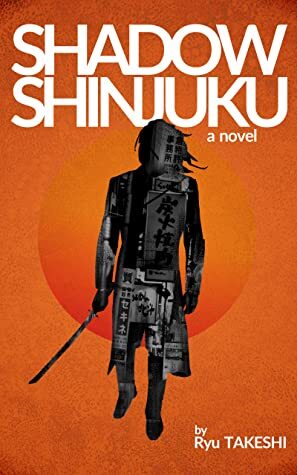 Sometimes I read a book that gives me pause, one that is thought provoking and so unique that my brain takes a while to come to conclusions. Shadow Shinjuku is such a book. It is immersive and detailed, full of dark corners and complex ideas.
Sometimes I read a book that gives me pause, one that is thought provoking and so unique that my brain takes a while to come to conclusions. Shadow Shinjuku is such a book. It is immersive and detailed, full of dark corners and complex ideas.
I really can’t remember reading another book that even mentions the Yakuza, so everything was new to me. I went into this book with eyes wide with curiosity, and my curiosity was rewarded with beautiful descriptions and fascinating locations.
Shadow Shinjuku is ostensibly an urban fantasy with a splash of noir, set in the unexplored corners of Tokyo. Sato went from living on the streets to killing for the Yakuza family (who rescued him from said streets) but ends up questioning the direction his life has taken, leading to an introspective book that is more inner musing than anything else. That isn’t a bad thing, but it was unexpected. I had to make an “expectation shift”, tossing aside everything I erroneously assumed this book to be.
I have to admit that I didn’t like Sato. His unflinching openness about things I don’t normally read in books was a little off-putting, although it added a layer of grittiness to the book and made him a more complex character. He also failed at the most basic of human emotions, so there’s that. Sato was deeply flawed, which made him interesting. I am one of those people who don’t need to like a character or relate to them to enjoy a book, so the fact that I didn’t like Sato wasn’t a deal-breaker for me.
There was a bit of a supernatural aspect to the book, although at the end of the day it really wasn’t the part of the book that stood out to me. While the magical bits didn’t detract from the book, I would almost say that they aren’t necessary.
A good chunk of Shadow Shinjuku was meandering, taking its time and focusing on an inner journey, rather than on action. The build-up is not rushed, so if you are the sort of person who wants a quick beginning, this book is not for you. This is a book unlike others I’ve read and, while my thoughts on it defy a “like” or “dislike” categorization, I like to think this is what the author was going for.
Gritty yet beautiful, complicated but with common themes of loyalty and what we do for those we consider family, Shadow Shinjuku was a study in contradictions. Pick this up if you like introspective characters, and living, pulsing settings.
Buy from Amazon
SHADOW SHINJUKU•SHADOW SHINJUKU•SHADOW SHINJUKU•SHADOW SHINJUKU•SHADOW SHINJUKU•SHADOW SHINJUKU•SHADOW SHINJUKU•SHADOW SHINJUKU•
The post Review – Shadow Shinjuku by Ryu Takeshi appeared first on BEFOREWEGOBLOG.
September 26, 2022
The Books That Made Me – A Game of Thrones by George R. R. Martin
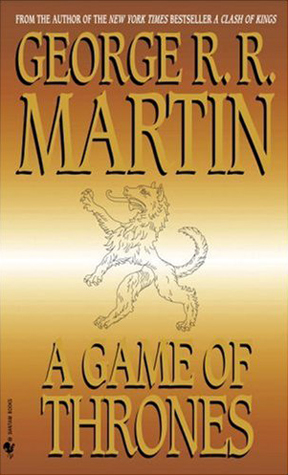 Like many people, George R.R. Martin’s A Song of Ice and Fire first appeared on my radar when HBO announced it would be adapting the series as Game of Thrones. Hyped as a darker take on the fantasy epic than most were familiar with, loosely inspired by the Wars of the Roses, its famously shocking plot twists and epic scale fascinated me before the show even premiered. I was intrigued by its portrayal of magic as something rare and mysterious, something many people didn’t even believe in. I wanted to see the battle scenes, to meet the characters the show’s longtime fans were so invested in, and to find out what happened in the ominously whispered about “Red Wedding.” In short, it was right up my proverbial alley.
Like many people, George R.R. Martin’s A Song of Ice and Fire first appeared on my radar when HBO announced it would be adapting the series as Game of Thrones. Hyped as a darker take on the fantasy epic than most were familiar with, loosely inspired by the Wars of the Roses, its famously shocking plot twists and epic scale fascinated me before the show even premiered. I was intrigued by its portrayal of magic as something rare and mysterious, something many people didn’t even believe in. I wanted to see the battle scenes, to meet the characters the show’s longtime fans were so invested in, and to find out what happened in the ominously whispered about “Red Wedding.” In short, it was right up my proverbial alley.
The only problem was, I didn’t even have HBO, meaning all those dramatic events had to remain mysterious. That is, until it occurred to me (an embarrassing amount of time later) that, you know, the actual books existed and I could even try reading them. So, I hoofed it down to my college library and walked away with book one, A Game of Thrones, tucked away in my backpack. I subsequently devoured the book over my winter break, the fact that pop culture had spoiled some of its twists doing nothing whatsoever to prevent me from being swept away by Westeros’s brutally escalating conflict between the Starks and Lannisters, by a young girl across the sea who receives a dragon’s egg as a wedding present, and a looming evil in the frozen north none of them are prepared for. I went on to inhale the entire series, completely hypnotized by every one of them; I became just as invested in the Tales of Dunk and Egg novellas as I was the main series. I adored the history books, The World of Ice and Fire and Fire and Blood. Some groused about GRRM’s working on these side projects rather than the next volume, but for me, hundreds of pages of history about my favorite fictional world was fantasy heaven.
All that history was one of the many reasons A Song of Ice and Fire captivated me so, launching itself among my favorite books ever. I wasn’t just absorbed by the misadventures of Jon, Dany and Tyrion. I wanted to read everything there was to read about Aegon the Conqueror and Asshai by the Shadow, The Andals and the First Men, Nymeria’s fleet, the Blackfyre Rebellions, and the Dance of the Dragons (now getting its own moment in the sun courtesy of HBO.)
Once I had done that, I took to the Internet, wanting to find more stories like it, taking my lifelong love of reading to lofty new heights. I found another of my favorite authors, Bernard Cornwell, as a result of ASOIAF, when I came across GRRM raving about Cornwell’s skill at writing battle scenes. My entire life, I’d had ideas for stories, but all this stoked my creativity more and more, the ideas coming faster and faster. And eventually, I realized I wanted to write an epic fantasy of my own (and a lot more books besides.)
That was how I knew I wanted to become a writer, and start making all those stories a reality. And eventually, that led me to now, about to publish my debut novel. I’d never stopped to fully consider it until I wrote this, but in a very real way, my career as a writer can be traced all the way back to the day I checked A Game of Thrones out of my college library.
Buy from Amazon
Game of Thrones•Game of Thrones•Game of Thrones•Game of Thrones•Game of Thrones•Game of Thrones•Game of Thrones•Game of Thrones•
The post The Books That Made Me – A Game of Thrones by George R. R. Martin appeared first on BEFOREWEGOBLOG.
Semifinalist Review – Envy: A Seven Deadly and Four Novel by Tim Beeden
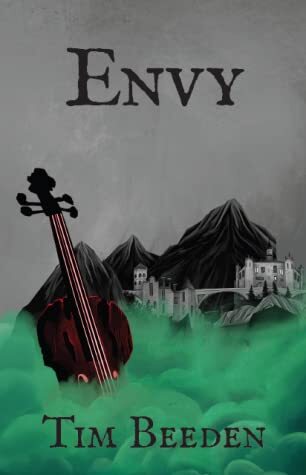 When Charlie Lightfoot plays his fiddle, people listen.
When Charlie Lightfoot plays his fiddle, people listen.
More importantly, they pay.
It could be that music is Charlie’s way out of a tough life on the Backstreets of Calver.
There are, however, plenty of people who are only too happy for Charlie to stay exactly where he is. Not only that, they’ll do whatever they can to keep him there.
But when Charlie decides to take his future in his own hands, he realises just how far-reaching the hands of others can be.
A story about always keeping your eye on someone else’s blessings.
“Envy is a Seven Deadly and Four novel set in and around the notorious city built on a hill – Calver. Once within the city’s great walls you’ll encounter such luminaries as Auntie, Drunk Morgan, Mr. Lunk, Blind Watch ‘em, as well as Charlie Lightfoot and his friends. Just remember to watch your step, keep your wits about you and carry something pointy.”
The Seven Deadly and Four books have been described as “ideal for fans of Douglas Adams and Terry Pratchett.”
Whitney: When it comes to books I enjoyed, writing reviews is a piece of cake. But books I loved? Well, writing reviews for those makes me all sweaty and more often than not, I wind up staring at a blinking cursor on the computer screen, cussing myself for being stupid. Why? Because I want to tell others all the things! I find myself in danger of giving away every twist and surprise. I want to act out the parts. I want to paint the landscape as I imagined it. I want to moosh together faces so others can see the characters the same way I do. And that’s where I am with Envy. I’m a sweaty, cussy, no-word-having, pantomiming, can’t-draw-stick-figures, photoshopping mess. I loved this book.
And when I say loved…I mean I fell into it and read it in one 4-hour sitting. The first time. I read it again a few days later and leisurely strolled through the pages in two days. The third time? (Yes…you read that correctly, the third time.) I wallowed for a week. I poked around in the gritty Backstreet corners of Calver. I tapped my toes to the neverheard rhythms of “The Bride of the Open Pastures.” I cheered for heroes’ triumphs and wished death on villains.
Krystle: While I didn’t read Envy as many times as Whitney did, I can confirm that this novel is easy to love! Beeden draws us in quickly and effectively, with a charming narrative voice that always gives just enough information to keep you grounded in what’s going on. Beeden’s humour is definitely his strength, and most of my highlights of Envy were lines that made me LITERALLY laugh out loud.
Whitney: So what should I tell you about Envy? Tim Beeden wrote it and it’s the second book in his “Seven Deadly and Four” series. But that doesn’t help you much. Not really.
One of Beeden’s most impressive talents is his ability to write a story that reads like someone is telling it aloud. I’m not an audiobook type of person but if someone were to tell me this story, I’d hang on their every word.
Krystle: Cutting in again to add: whilst I’m not a musician, I found myself especially drawn to how lovingly Beeden (through the MC, Charlie) talks about making music. This exchange especially really caught me, since it’s often how I feel about writing in general:
“You were fantastic!” Charlie said, sitting down beside him.
“Right up until I wasn’t,” Blind Watchem replied. “The worst part was, I knew it was coming. Could feel it coming but still couldn’t stop. Once the music gets a hold of you, you’ve got to ride the lightning. Even if it means you end up getting burnt.”
Whitney: Equally impressive is the fact that Envy rubs up right alongside accepted standard fantasy tropes without actually employing any of them.
Unlikely but likable hero?
How about Charlie Lightfoot, a smart-mouthed street kid just trying to make a living?
Loyal companions?
Yes. Arthur and Millicent. But they aren’t lifelong friends or soul mates. More like Legolas and Gimli. You know, they’re tossed together and don’t particularly like each other, or Charlie, to start off with.
A quest?
Eh…more like spontaneous exploration to escape oppression and injustice. A journey to live a little.
Wizard mentor?
Let’s go with Blind Watchem, a heavy drinking former musician turned music teacher, instead.
Elusive magic?
Music is moving, powerful, transformative; that will work.
Powerful foes?
How about pompous, wealthy, utterly detestable nobility treating people like chattel?
Mysterious hedge witch/priestess?
Umm…Auntie. A cantankerous old woman with a soft spot for wayward orphans and who just happens to know everyone and everything as soon as it happens.
Envy isn’t dark or scary, but the stakes are legit. Beeden develops his characters so impeccably you can’t help but care about what happens to them. This is an easy read without being simple. It’s funny but doesn’t try to be. It’s sweet without the saccharine. Honestly, it reads like listening to someone tell a story. Aside from the thoroughly developed primary players, the secondary (and tertiary) characters are superb and play their roles beautifully. I mean, how can you go wrong with people named Mr. Lunk, Drunk Morgan, and Hacker Jon?
Beeden unflinchingly pokes the tender places where human insecurity and jealousy live – without walloping readers over the head with lessons to learn or messages to impart. I love a book with strong thematic currents but reading those kinds of stories can be mentally and emotionally exhausting. Envy manages to find a perfect balance. If a reader wants to just enjoy a good story, easy peasy. If a reader wants to think deeper and consider deeper thematic currents within the narrative, that’s certainly do-able too. Beeden brilliantly provides balance for every heavy, and every light. A jealous and vain suitor is offset by a genuine, loyal friend. Grasping ambition is foiled by contentment. The heroes are relatable and flawed. The villains are horrible and a joy to hate.
Krystle: I have to come back to the effortlessness of Beeden’s narrative voice. Like Whitney mentioned at the beginning, there’s something about Envy that makes you feel like Charlie truly is telling you the story, with glorious little asides that give it a natural rhythm without hampering the movement of the plot. By far one of my favourites:
Blind Watchem had told him after his encounter with the doorman of the First Inn, ‘every time you take a step up, you’ve got to learn how to avoid getting knocked down’. He’d also said that ‘you can chop a tree down, but you can’t stop a weed from growing’ which didn’t seem to help much, but it had been early afternoon so Blind Watchem was probably well on his way to being sozzled.
Whitney: The only criticism I have for this book is the choice of title and cover art. That said, I understand this is part of a series of standalones for Beeden and the goal is to match styles. Regardless, if the other books in the series are all this good, I won’t care what the covers look like or what the titles are. I’ll read them all.
Krystle: Well said. It’s with this enthusiasm that we both agree that Tim Beeden’s Envy deserves the coveted Semi-Finalist badge from the BWG team for SPFBO 8.
Congrats, Tim!
Buy from Amazon
Envy•Envy•Envy•Envy•Envy•Envy•Envy•Envy•
The post Semifinalist Review – Envy: A Seven Deadly and Four Novel by Tim Beeden appeared first on BEFOREWEGOBLOG.
Television Review – HOUSE OF THE DRAGON 1×06 “THE PRINCESS AND THE QUEEN”
HOUSE OF THE DRAGON 1×06 “THE PRINCESS AND THE QUEEN” is basically a reboot of the entire House of the Dragon series, which is an odd thing to happen in the fifth episode of the season. Here, we have a massive decade-long time skip, a change of a substantial portion of the cast’s actors, and a focus on setting up the new status quo. It feels like they could have made an entire season out of the first five episodes or skipped them entirely.
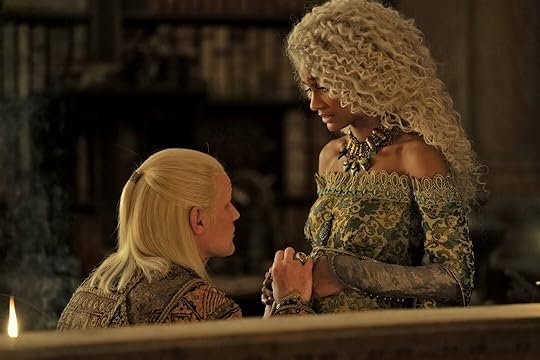
I’ve complained earlier about the show’s issues with time and it’s not something that has gotten any better but something I hope we’re at least past the worst of. There’s too many important character beats and events that need to be followed up on. Just last week, we had Ser Criston Cole beat to death a guest at the royal wedding and it’s not even mentioned in this episode. That’s because it took place ten years earlier but it still is something that should have been mentioned or, better yet, had a whole episode of follow up.
Anyway, the premise is that Rhaenyra has just given birth to another child that is suspiciously neither black nor white-haired. Their father is obviously not Laenor but Ser Harwin Strong, the city guard captain. As such, Alicent takes no small amount of pleasure in rubbing this fact in Rhaenyra’s face. She truly believes her father’s insane statement that Rhaenyra would murder her children so she’s planning to murder hers first.
Fans of Fire and Blood will appreciate Alicent is no longer being treated as a sweet and kind girl done dirty. No, she’s taken several levels in jerkass and is now someone who spends all of her time spitting Rhaenyra, Rhaenyra’s children, and underming their position at court. It’s much more similar to the character in the books but it will come as a great shock to those used to the show’s portrayal of her.
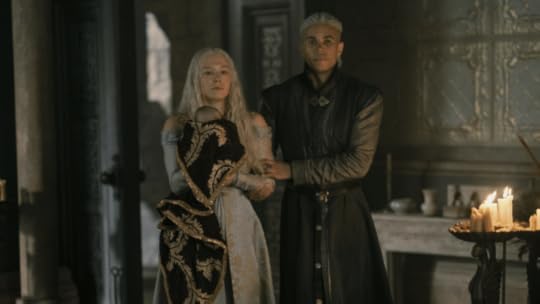 Speaking of awful characters, we also see Ser Criston Cole has turned from a charming knight in shining armor to a vengeful bully that not only displays misogynist behavior toward Rhaenyra but also behaves as an absolute scumbag toward young children. I suspect he will rapidly become the anti-Jaime Lannister among fans and be someone the audience actively roots for dying.
Speaking of awful characters, we also see Ser Criston Cole has turned from a charming knight in shining armor to a vengeful bully that not only displays misogynist behavior toward Rhaenyra but also behaves as an absolute scumbag toward young children. I suspect he will rapidly become the anti-Jaime Lannister among fans and be someone the audience actively roots for dying.
Rhaenyra is a great deal more mature despite her questionable choice of making a paramour of a man with no resemblance to her husband. She has evolved into a person who could be a capable queen and effective leader but has already made dire enemies of both her stepmother plus a Kingsguardsman. Worse, she’s still not overly fond of her husband and hasn’t been making the kind of alliances she needs to with Alicent plotting to put her son on the throne.
I like the depiction of Aegon in the story as he’s clearly an unhinged wild child who has no limits on his behavior. He’s also a bully who enjoys tormenting his relations and should never be entrusted with power. The fact Alicent keeps trying to to turn him against his relatives (and it’s working) shows how much of a duplicitous and awful person she’s become. Also, the fact she has no interest in the greater good of the realm but only her own family’s advancement.
The big villain of the piece seems to be Lord Larys Strong and his turn on his family is genuinely shocking. Unfortunately it lacks dramatic impact because we haven’t gotten to know Lord Strong or their father very well. This is another element that shows how much the show has suffered for underdeveloping its characters outside the Targaryens. Also, I don’t get Lord Larys’ motives that go from 0-100 for evil in an instant.
In conclusion, the acting is strong in this one but so disconnected from the rest of the stories that we’ve experienced that it might as well be a new show. As such, I am really hoping we’re done with the time skips as they’ve effectively killed a lot of my interest in the show. It’s still fascinating and well-written but I feel like I’m on a roller coaster.
7/10
THE PRINCESS AND THE QUEEN•THE PRINCESS AND THE QUEEN•THE PRINCESS AND THE QUEEN•THE PRINCESS AND THE QUEEN•THE PRINCESS AND THE QUEEN•THE PRINCESS AND THE QUEEN•THE PRINCESS AND THE QUEEN•THE PRINCESS AND THE QUEEN•
The post Television Review – HOUSE OF THE DRAGON 1×06 “THE PRINCESS AND THE QUEEN” appeared first on BEFOREWEGOBLOG.
September 24, 2022
Review – Dungeon Crawler Carl by Matt Dinniman
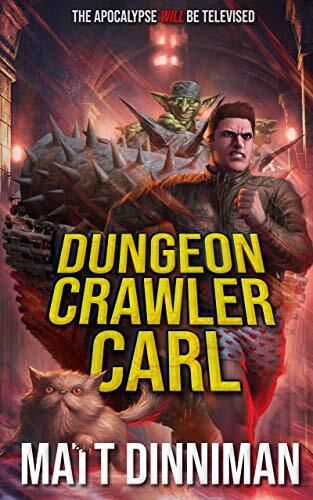 DUNGEON CRAWLER CARL by Matt Dinniman is that rare creature that I have found: the Lit-RPG that I really enjoy. Unlike many settings in the subgenre, though, the in-universe reasoning makes sense: the protagonists are trapped in an enormous reality television show based around the fantasy genre. Basically, our protagonist is dumped into a game halfway between The Squid Game and World of Warcraft. He’s also forced to wear a magical pair of boxer shorts and an intelligent talking cat. It is a fun book and doesn’t take itself remotely seriously.
DUNGEON CRAWLER CARL by Matt Dinniman is that rare creature that I have found: the Lit-RPG that I really enjoy. Unlike many settings in the subgenre, though, the in-universe reasoning makes sense: the protagonists are trapped in an enormous reality television show based around the fantasy genre. Basically, our protagonist is dumped into a game halfway between The Squid Game and World of Warcraft. He’s also forced to wear a magical pair of boxer shorts and an intelligent talking cat. It is a fun book and doesn’t take itself remotely seriously.
The book begins with the death of 99.99% of humanity. Basically, everyone who was indoors during the event is killed instantly, including cars and planes. Aliens have come to claim the Earth and offer the surviving humans a choice: they can either participate in a massive live action fantasy RPG with life and death stakes or die in the ruins of their dead world. Carl, who had been getting his ex-girlfriend’s cat in his boxers, chooses the former. Ironically, his cat is added as a player and is uplifted to superhuman intelligence by participating in the game as well.
The chief draw of the book is the strange relationship between Carl and his cat partner, Donut. Donut is a show cat that has been spoiled and retains memories of things like Gilmore Girls as well as how Carl’s ex-girlfriend used to cheat on him constantly. It’s adorable and the fact Donut’s enhanced intelligence puts her above Carl’s own plus the fact she’s pathologically addicted to fame is the source of much of the book’s humor.
Indeed, part of what makes the books so entertaining is its commitment to realizing how utterly ridiculous the situation is yet playing it straight. Carl and the remaining survivors of humanity are trapped in what amounts to an utterly insane game show run by incredibly immature [expletives]. All the magical objects and achievements have sarcastic mocking descriptions and the people running the show are bored xenophobic sociopaths or corporate shills (or both).
This is a very funny book and yet it maintains just enough of seriousness about how horrible Carl’s circumstances (let alone humanity’s) are to give actual stakes to what is going on. Humanity’s extinction is very likely and there’s probably nothing Carl can do to prevent it, but he can certainly try to gum up the works as much as possible. He can also attempt to save Princess Donut, who is the best kitty in the universe.
The rules and magic system are functional but mostly immaterial. Carl is always the underdog in any given situation because he’s always taking on more than he can chew. He also has to deal with player-killing fellow Crawlers who realize the best way to survive is probably to do less killing of NPCs (who are living thinking constructs themselves) and more their fellow confused humans. This is in addition to the massive number of mutated humans, monsters, and other weirdness Carl encounters on his journey through the first couple of levels.
In conclusion, this is a very fun book and full of dark humor that makes it a joy to read. After all, what sort of book can have its hero accidentally blow up a bunch of goblin children, get an achievement for it (complete with lootbox), and then have the description of it call him out for being such a complete monster? Yes, it is that sort of book.
Buy from Amazon
DUNGEON CRAWLER CARL•DUNGEON CRAWLER CARL•DUNGEON CRAWLER CARL•DUNGEON CRAWLER CARL•DUNGEON CRAWLER CARL•DUNGEON CRAWLER CARL•DUNGEON CRAWLER CARL•DUNGEON CRAWLER CARL•
The post Review – Dungeon Crawler Carl by Matt Dinniman appeared first on BEFOREWEGOBLOG.



